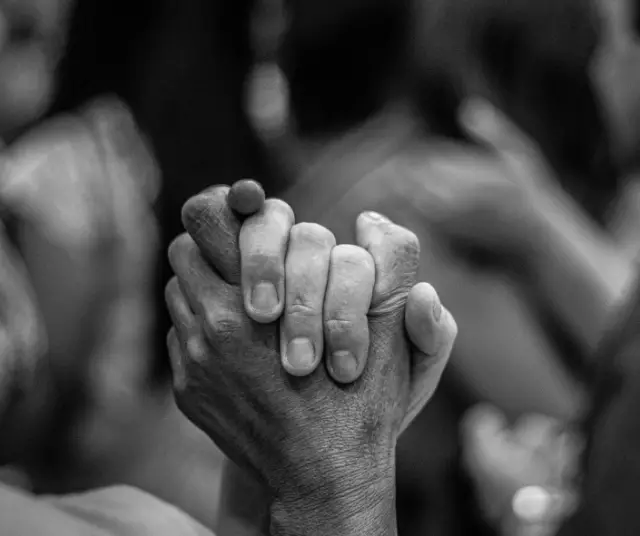The International Day of Coexistence in Peace is a celebration that invites us to reflect on the importance of building societies based on harmony, respect and tolerance. This day, proclaimed by the United Nations General Assembly, seeks to promote the fundamental values that support peaceful coexistence between individuals, communities and nations.
Origins of the International Day of Coexistence in Peace
The International Day of Coexistence in Peace was established by the United Nations General Assembly on December 16, 1997. This date was chosen to commemorate the anniversary of the adoption of the Universal Declaration of Human Rights in 1948. The Universal Declaration of Human Rights is a historical document that proclaims the fundamental rights inherent to all human beings, regardless of race, color, religion, sex, language, political or other opinion, national or social origin, economic position, birth or any other condition.
The International Day of Coexistence in Peace was established with the aim of promoting the ideals of peace and mutual respect throughout the world. Coexistence in peace not only refers to the absence of armed conflicts, but also to the construction of societies in which human rights are respected, cultural diversity is encouraged and equality is promoted.
Relevance in the Contemporary World
In the current context, marked by geopolitical tensions, ethnic conflicts and environmental challenges, the relevance of the International Day of Coexistence in Peace takes on crucial importance. Globalization has connected people in ways previously unimaginable, but it has also exposed divisions and inequalities. Peaceful coexistence becomes a moral and practical imperative to address the challenges facing humanity.
Coexistence in peace not only implies the absence of violence, but also the active promotion of social justice, gender equality and respect for diversity. In an interconnected world, the actions of one country can have global repercussions, highlighting the need for collaboration and mutual understanding. The International Day of Coexistence in Peace urges us to reflect on how we can contribute individually and collectively to the construction of a more peaceful and just world.
Challenges for Coexistence in Peace
Despite the ideals proclaimed in the Universal Declaration of Human Rights and the importance of the International Day of Coexistence in Peace, the world faces numerous challenges that hinder the achievement of these goals. Discrimination, xenophobia, economic inequality and lack of access to education are just some of the obstacles that hinder peaceful coexistence.
Armed conflicts in different parts of the world also represent a constant threat to global peace. The lack of dialogue, the imposition of political agendas and intolerance contribute to the perpetuation of violence and instability. Addressing these challenges requires a comprehensive approach involving governments, international organizations, civil society and individual citizens.
The Role of Education in Peaceful Coexistence
Education plays a fundamental role in building peaceful and tolerant societies. The promotion of inclusive education that fosters intercultural understanding, empathy and respect for diversity is essential to cultivate generations that advocate for peaceful coexistence. Educational institutions have the responsibility to develop programs that promote the fundamental values of tolerance, equality and justice.
Furthermore, human rights literacy and social awareness are key tools to empower people and equip them with the knowledge necessary to advocate for justice and peace. Teachers play a crucial role in guiding students toward critical understanding of global issues and inspiring active engagement in building a more just world.
The Importance of Dialogue and Diplomacy
Dialogue and diplomacy are cornerstones in the construction of peaceful coexistence. Resolving conflicts through dialogue and negotiation prevents human suffering and creates a path to sustainable solutions. The international community must strengthen its conflict resolution mechanisms and promote preventive diplomacy as a means to avoid escalating tensions.
Building bridges of communication between cultures, religions and nations is essential to overcome misunderstandings and stereotypes that often fuel intolerance. The promotion of diversity and inclusion at all levels of society contributes to the creation of an environment conducive to peaceful coexistence.
The Role of Civil Society and Individuals
Civil society plays a crucial role in promoting peaceful coexistence. Non-governmental organizations, human rights advocates and individual citizens have the power to drive change locally and globally. Active citizen participation, advocacy for social justice, and accountability of leaders are essential components of building peaceful and equitable societies.
At the individual level, each person has the responsibility to cultivate values of respect, tolerance and empathy in their daily interactions. Recognition of shared humanity, regardless of superficial differences, is essential to building bridges between communities and overcoming divisions.
Technological Challenges and Peaceful Coexistence
In the digital age, technology presents challenges and opportunities for peaceful coexistence. While global connectivity allows for greater understanding between cultures, it can also be a means for the spread of misinformation and hate speech. Responsible regulation of online platforms, digital literacy and promoting ethical use of technology are imperative to mitigate the risks associated with the digital age and harness its potential for good.
Every individual, organization and nation has a role in promoting the values that underpin peace. Building bridges between cultures, defending human rights and actively seeking peaceful solutions are actions that contribute to building a future in which peaceful coexistence is a reality for everyone. By embracing diversity and working together toward a common goal, we can build a world where peaceful coexistence is the foundation of society.
